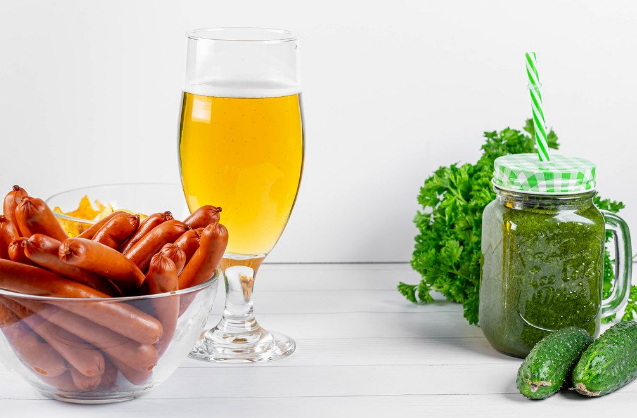Do you suffer from bloating?
Or nausea and vomiting?
Did you change your diet to reduce these uncomfortable symptoms?
Intestinal disorders
Intestinal disorders are becoming more common worldwide affecting 3 out of 10 people. Irritable bowel syndrome is not a life-threatening condition and it usually affects more women than men. There are numerous factors which may cause this condition. The most common factors are stress, viral infections, alcohol consumption and poor diet. Intestinal disorders can affect both children and adults.
What is Irritable Bowel Syndrome, IBS?
Irritable Bowel Syndrome (IBS) is a common disorder that affects the large intestines. This may cause bloating, cramps, diarrhea and constipation. If you have IBS you may experience only 1 symptom such as diarrhea or constipation, every 2 weeks in adults. In children, they might experience IBS symptoms during the exam period only. On the other hand, some people may have diarrhea followed by constipation on a daily basis. Dealing with IBS symptoms everyday may have a big impact on your life and in fact it can cause anxiety. Fortunately, only a small number of people suffering from IBS have severe symptoms. IBS might be mixed with inflammatory bowel disease, IBD, as they show quite the same symptoms. It is important to note that IBS is different from IBD as IBD includes chronic diseases such as Crohn’s and Ulcerative colitis.
IBS can be diagnosed after there are least 3 months period during which you experience either diarrhea, diarrhea followed by constipation, or chronic constipation. Usually, patients affected by IBS show no structural signs in the large intestines and usually have correct medical check-up results including blood test.
Coping with IBS
IBS is a chronic condition that you’ll need to cope with it long term, possibly a lifetime. Fortunately, mild symptoms can be prevented or treated by dietary changes, lifestyle changes and minimizing stress as much as possible. While severe symptoms can be managed with medication along with diet and counselling sessions.
The first dietary recommendation for IBS is a lactose free diet along with a low fiber diet. These types of diet are recommended during symptoms of diarrhea. If, the symptoms persist a Low FODMAP diet may be recommended by a dietitian. The word ‘FODMAP’ stands for Fermentable Oligo- Di- and Monosaccharides and Polyols. This diet minimizes the food intake containing short chain carbohydrates which are badly absorbed in the small intestine and may lead to bloating, increased gas production and also have a laxative effect.
High FODMAP products include fresh and dried fruits, fruit juices, fructose as sweetener, high fructose corn syrup, sweeteners like: sorbitol, mannitol, honey, coconut, cruciferous veggies, beans and sprouts. In addition, it’s worth considering writing a food diary including emotions, activities and environment. In certain circumstances, probiotics may also play a role in improving symptoms although there is no concrete research about this till now.
A diet for IBS can be considered quite challenging as it may be time- consuming. In addition, certain foods preferred by the person may have to be eliminated from the diet causing a psychological effect. It is always recommended that any diet changes are first discussed with a registered dietitian, especially in children as they are still growing up. Despite this challenging diet, a diet appropriate for IBS may improve quality of life by reducing intestinal symptoms, so I think it’s definitely worth to try it.




